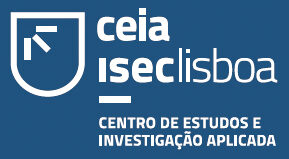Line of Research CL1:
Pedagogical and Didactic Practices
Não projects found
Line of Research CL2:
Organizational and Curriculum Management
Line of Research CL3:
Protection, Safety and Environment Strategies
Line of Research CL4:
Sustainability and Territory Management
Line of Research CL5:
Administrative Modernization
| Survey and mapping of the human resources critical skills of the tourism, hotel and restaurant sectors Principal Investigator: Ana Barqueira About This applied project has as its general objective the development of a pilot mapping project on the skills of hotel workers, and as specific objectives: the systematization of scientific knowledge on the skills and their respective mapping; conducting a survey on the mapping initiatives of skills in hotels and hotel facilities; the identification of organizational skills in hotels and hotel facilities operating in Portugal; the mapping of the individual. ——— |
Line of Research CL6:
Aeronautics, Space and Air Transport
No projects found
Line of Research CL7:
Training, Evaluation and Professional Development of Teachers
Line of Research CL8:
Hospitality Management
